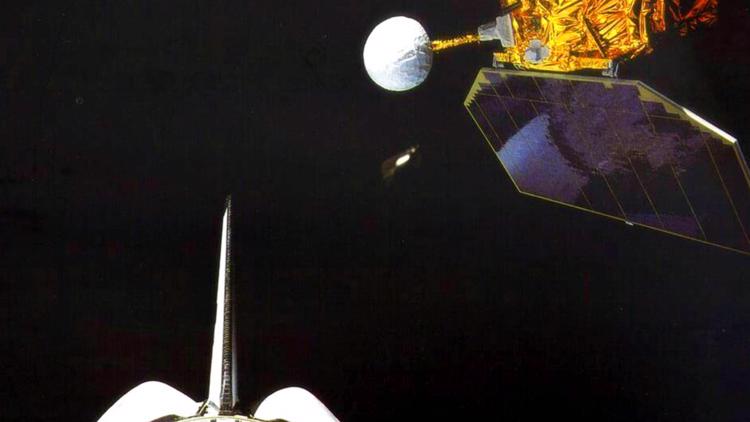CAPE CANAVERAL, Fla. — A 38-year-old retired NASA satellite is about to fall from the sky.
NASA said Friday the chance of wreckage falling on anybody is “very low.” Most of the 5,400-pound (2,450-kilogram) satellite will burn up upon reentry, according to NASA. But some pieces are expected to survive.
The space agency put the odds of injury from falling debris at about 1-in-9,400.
The science satellite is expected to come down Sunday night, give or take 17 hours, according to the Defense Department.
The California-based Aerospace Corp., however is targeting Monday morning, give or take 13 hours, along a track passing over Africa, Asia the Middle East and the westernmost areas of North and South America.
RELATED STORY: Top skywatching events of 2023 you don't want to miss
The Earth Radiation Budget Satellite, known as ERBS, was launched in 1984 aboard space shuttle Challenger. Although its expected working lifetime was two years, the satellite kept making ozone and other atmospheric measurements until its retirement in 2005. The satellite studied how Earth absorbed and radiated energy from the sun.
RELATED STORY: NASA lander that caught Martian dust devil audio goes silent
The satellite got a special sendoff from Challenger. America's first woman in space, Sally Ride, released the satellite into orbit using the shuttle's robot arm. That same mission also featured the first spacewalk by a U.S. woman: Kathryn Sullivan. It was the first time two female astronauts flew in space together.
It was the second and final spaceflight for Ride, who died in 2012.



